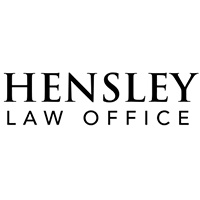 Greenup County, KY DUI-DWI Lawyers
Greenup County, KY DUI-DWI Lawyers
Sponsored Law Firm
-
 x
x

Click For More Info:
-
Keches Law Group
122 Dean Street Taunton, MA 02780» view mapSocial Security, Personal Injury, Workers Comp. Protecting Your Rights
Our team of experienced personal injury attorneys has over 130 years of combined experience representing individuals and families injured due to the negligence of others.
800-713-8650
Not enough matches for Greenup DUI-DWI lawyer.
Below are all Greenup lawyers.
Sponsored Lawyers
1-10 of 14 matches
Divorce & Family Law, Personal Injury, Workers' Compensation
For over two decades, residents of Russell and Greenup County have benefited from the legal services we offer at Hensley Law Office. Committed to personalized attention, our veteran staff will work with you throughout all stages of the legal process. Led by Jeff Hensley, our founding attorney, we aim to educate our clients on the benefits and drawbacks of their options and clarify the steps required by the legal process. In reducing the complexity associated with the practice of law, we believe that sharing this knowledge with you will help you feel comfortable with the decisions you'll be called to make. Our dedication to customer service extends to our high-quality representation. Having tried cases in Kentucky's state and federal courts, Jeff is a practiced litigator. You will benefit from his extensive experience as a trial attorney because of his familiarity with the court system and its procedures ensures he addresses legal issues efficiently. Drawing on his legal knowledge, Jeff has developed a perspective that enables him to anticipate future conflicts and propose solutions for both immediate and long-term issues.
(more)Accident & Injury, Estate, Social Security, Criminal
Phillip "Bruce" Leslie was born June 24, 1947. Bruce is a 1965 graduate of Paul Blazer High School, in Ashland, Kentucky. Bruce is married to Leannah Leslie and they have two children, Allison Allred & Brett Leslie. After graduation, Bruce pursued his college education at the University of Kentucky, receiving a Bachelor's Degree in Education. In 1969, Bruce was admitted to the University of Kentucky College of Law in 1970, receiving his Juris Doctorate in 1973. Shortly thereafter, Bruce, along with John R. McGinnis, became a partner in what would become one of the State’s most prominent law firms. Bruce currently is a Senior Partner. For nearly four decades, Bruce Leslie has vigorously pursued his belief in giving back to the community. He has served with distinction as a member of the Kentucky Bar Association House of Delegates, member and Chairman of the Board of Ashland Community & Technical College; a member, secretary, vice president and Chairman of the Board of the Paramount Arts Center, a member and Chairman of the Institutional Review Board of Our Lady of Bellefonte Hospital, a member and Chairman of the Audit Committee of Our Lady of Bellefonte Hospital and a member and Board member and Chairman of the Board for Community Hospice. In addition, Mr. Leslie is proud to serve as a vestry member of the Calvary Episcopal Church since 2004.
(more)


 Sean Flaherty Taunton, MA
Sean Flaherty Taunton, MA AboutKeches Law Group
AboutKeches Law Group Practice AreasExpertise
Practice AreasExpertise


